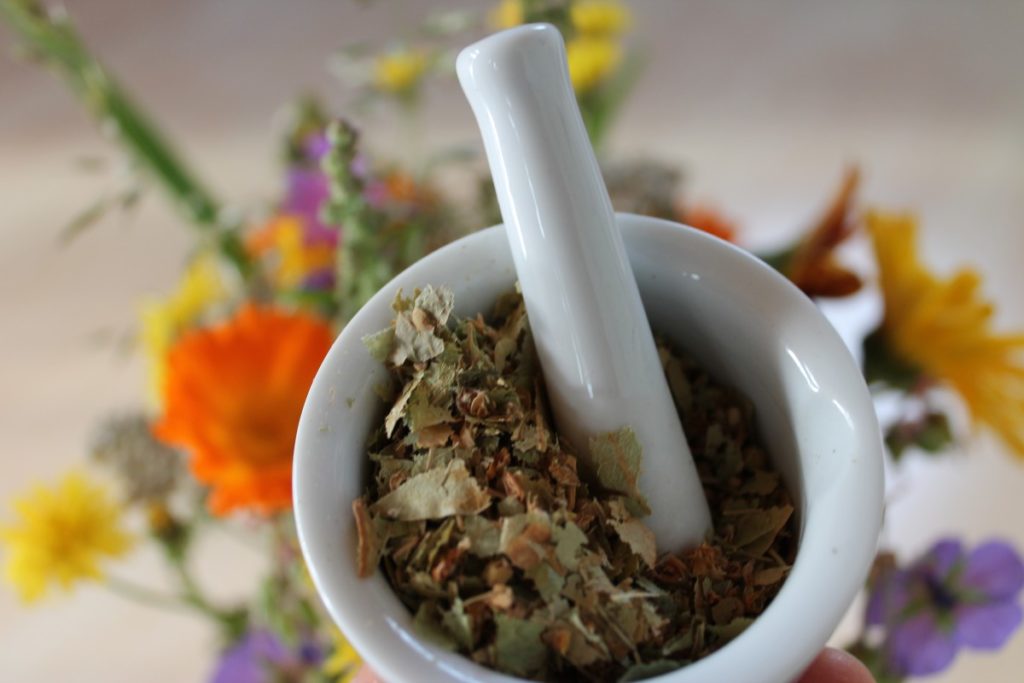Introduction:
Products made from botanicals, or plants that are used to treat diseases or to maintain health are called herbal products.
Herbal supplements may be:
- Swallowed as pills, powders, or tinctures
- Brewed as tea
- Applied to the skin as gels, lotions, or creams
- Added to bath water
The FDA and herbal supplements:
The FDA considers herbal supplements foods, not drugs. Therefore, they are not subject to the same testing, manufacturing, and labeling standards and regulations as drugs. Herbal supplements are not required to be standardized to ensure batch-to-batch consistency.
Precautions while using Herbal medicines:
Learn as much as you can about the herbs you are taking by consulting your doctor and contacting herbal supplement manufacturers for information.
If you use herbal supplements, follow label instructions carefully and use the prescribed dosage only.
Seek out the services of a trained and licensed herbalist or naturopathic doctor who has extensive training in this area.
Watch for side effects. If symptoms, such as nausea, dizziness, headache, or upset stomach, occur, reduce the dosage or stop taking the herbal supplement.
Be alert for allergic reactions. A severe allergic reaction can cause trouble breathing. Go to the Emergency room if such a problem occurs, Call for help.
Most common herbal supplements:
| Black cohosh | This shrub-like plant of eastern North America derives its name from the Native American word for “rough” (referring to its root structure). It is generally used for menopausal conditions, painful menstruation, uterine spasms, and vaginitis. |
| Echinacea | Often used to strengthen the body’s immune system. Echinacea is also considered prevention against colds and flu. |
| Evening primrose | Oil from this night-blooming, bright yellow flowering plant may be helpful in reducing symptoms of arthritis and premenstrual syndrome (PMS). |
| Feverfew | The pain-relieving properties of feverfew have been used for migraine headaches, as well as for menstrual cramps. |
| Garlic | Garlic is generally used for cardiovascular conditions, including high cholesterol and triglyceride levels associated with the risk of atherosclerosis. |
| Gingko biloba | This herb is used for many conditions associated with aging, including poor circulation and memory loss. |
| Ginseng | Used as a general tonic to increase overall body tone, ginseng is considered helpful in elevating energy levels and improving the body’s response to stress. |
| Goldenseal | This herb, native to America, is popular for its healing properties and antiseptic, or germ-stopping, qualities. Often used for colds and flu, it is also popular for soothing the nose lining when it is inflamed or sore. |
| Green tea | This herb is used to combat fatigue, prevent arteriosclerosis and certain cancers, lower cholesterol, and aid in weight loss. |
| Hawthorn | Hawthorn is popularly used for several heart-related conditions and is supportive in the treatment of angina, atherosclerosis, heart failure, and high blood pressure. |
| Saw palmetto | Saw palmetto may be used for enlarged prostate, a common condition in men over age 50. |
| St. John’s wort | This herb has been used for centuries in the treatment of mental disorders. Today, it is a popular recommendation for mild to moderate depression. |
Conclusion:
It is important to remember that herbal supplements are not subject to regulation by the FDA and, therefore, have not been tested in an FDA-approved clinical trial to prove their effectiveness in the treatment or management of medical conditions. Talk to your doctor about your symptoms and discuss herbal supplements before use.
